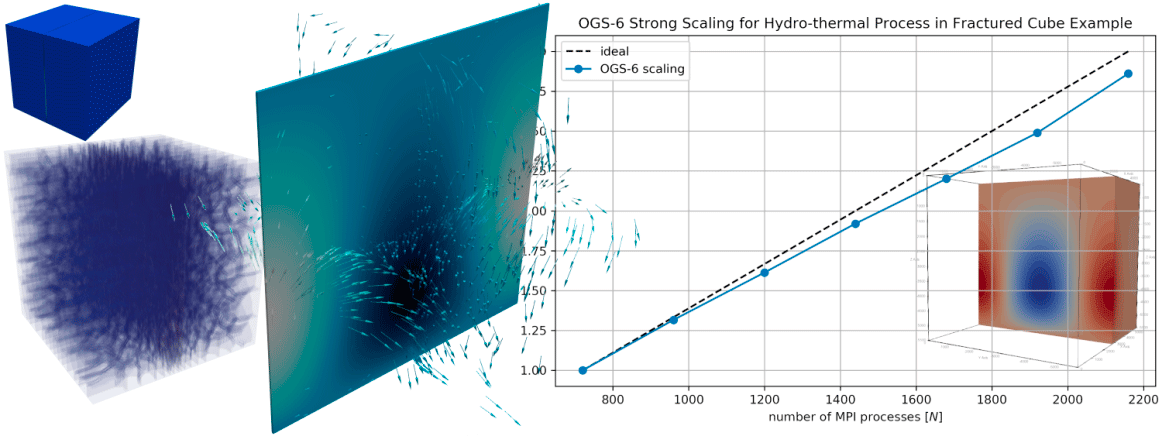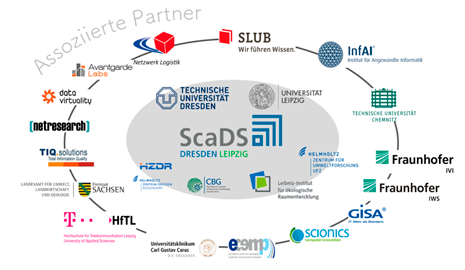ScaDS

Project title: Competence Center for Scalable Data Services and Solutions Dresden/Leipzig – Phase 2
Short project description:
Since October 2014, the Big Data Competence Center ScaDS Dresden / Leipzig has been implementing a concept for cooperative research on big data technologies and their interdisciplinary application for a broad spectrum of applications in science and industry. In the ongoing second phase, the competence profile will be strengthened in order to further increase the international visibility of ScaDS Dresden / Leipzig and German big data research. The methodology focuses on three main areas: Visual Analysis, Big Data Integration & Analytics, and Scalable and Secure Data Platforms. The work programme will be complemented by new profile-setting topics concerning the treatment of dynamic data and the support of interactive analysis. Furthermore, developments and infrastructure are made widely available to the German user community and associated project partners are supported by the service centre during development and optimisation of new algorithms and applications.
 Structure of the competence centre (Source: https://www.scads.de/en/project/project-overview)
Structure of the competence centre (Source: https://www.scads.de/en/project/project-overview)
Within the scope of the project, the focus will be on the performance and cross-platform distribution capabilities of the open-source platform OpenGeoSys for the simulation of thermal-hydraulic-mechanical-chemical coupled multi-field processes in porous, fractured media. The scalability and parallel efficiency of individual OpenGeoSys components will be analysed as well as the simulation software as an overall application for the use of high-performance computing resources. Tracing and profiling tools will be used to identify time-critical sections of code and to identify opportunities for software improvement. In addition to increased performance on a particular system, the development of automatically generated and portable software-containers will result in reproducible container-based HPC-enabled simulations. This allows for the easy transfer of all relevant software modules and data onto arbitrary environments for execution as a HPC-enabled runtime. This way, it becomes possible to create reproducible simulation results across varying platforms, which will greatly improve the possibilities for transfer and archival of calibrated and comparable results of complex environmental process simulations.
Project duration: 10/18 – 09/21
Funding organisation: BMBF

Project partners:
- Helmholtz Centre for Environmental Research – UFZ
- Helmholtz-Zentrum Dresden-Rossendorf
- Leibniz Institute of Ecological Urban and Regional Development
- Leipzig University
- Max Planck Institute of Molecular Cell Biology and Genetics
- Technische Universität Dresden – coordinator
At the Department of Environmental Informatics, research for this project is being conducted at the workgroup Informatics.
Project website: https://www.scads.de
This research was also part of the OpenGeoSys initiative (http://www.opengeosys.org/).
